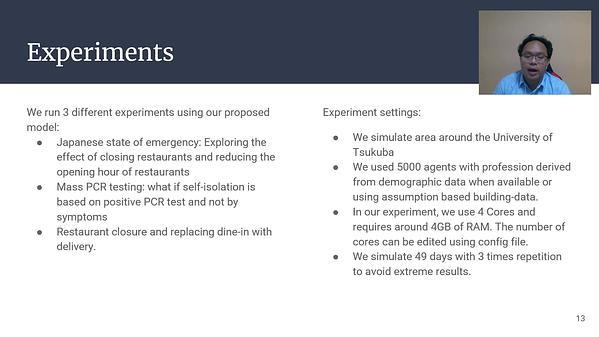Would you like to see your presentation here, made available to a global audience of researchers?
Add your own presentation or have us affordably record your next conference.
keywords:
eastern asia
nationalism
pandemic
The COVID-19 pandemic has bolstered xenophobic sentiments along with new manifestations of nationalism. Trump’s “kung flu” schoolyard taunt, which was linked not only to anti-China sentiment but to violence against Asian-Americans, exemplifies the vicious presentation of some of these forms. By way of contrast, the so-called “Milk Tea Alliance” (netizens from Hong Kong, Taiwan, Thailand and Myanmar) likewise expressed pointed political critique of China (along with other targets), but in a more nuanced way with cute and humorous memes. In this time of crisis, there has been a resurgence of reactionary nationalism that manifests in various ways: we debate whether these manifestations in East Asia can be conceived as a cute-vicious dialectic and whether they have served to advance human rights or to achieve the opposite. Governments across Asia employed various strategies to limit the spread of COVID-19, such as the K-Quarantine in South Korea to the Three Cs (avoiding closed spaces, crowded places, and close-contact settings) in Japan. Several explanations for why certain countries and regions in East Asia have been more resilient against the virus have been offered: there was cultural compliance with such strategies, the populations were hygienic and restrained. Bad Neanderthal genes, along with a lack of discipline among Westerners, have contrastively been identified as reasons for the early rampant spread in the United States and in Europe. There have even been popular discussions that posit the forcefully aspirated consonants of English have contributed to the aerosolized spread of coronavirus to a greater degree than pronunciation features of Korean and Japanese. Within East Asia, internal comparisons are drawn with every new outbreak or cluster, and discourses concern the (in)competence of politicians and health campaigns, the limitations of enforcement in democratic systems vis-à-vis authoritarian ones, and media misrepresentation. In Taiwan, citizens have been urged to guard both democracy and their health as concerns grow over "Red Net armies" and as many look askance at vaccines from China, assessing their reliability negatively. Our panel is interested in pandemic nationalism in East Asia, with a specific focus on Taiwan, Japan, China, and South Korea. We look at discourse•including soft power displays and humorous memes with sharp messages. We ask, first of all, is it nationalism after all? And secondly, what manifestations and characteristics of political or nationalist critique have emerged in East Asia during the pandemic?

